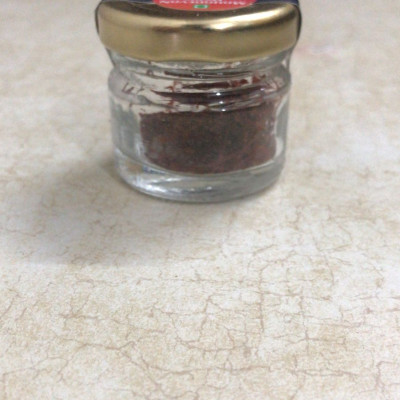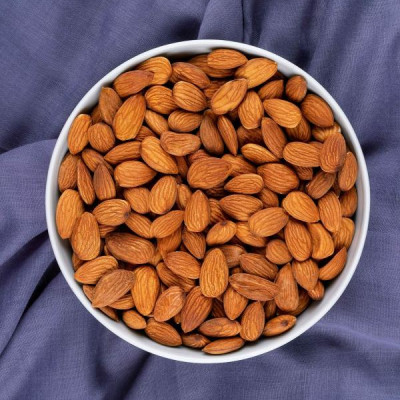DRY FRUITS
The Complete Guide to Cashew Nuts W-180

ABOUT CASHEW NUTS W-180
Introduction to Cashew W-180
Cashew W-180, also known as "White Wholes 180," is a popular variety of cashew nuts that is highly sought after for its premium quality and large size. These cashews are characterized by their distinct shape, creamy color, and rich flavor. The "W-180" designation refers to the number of cashew kernels per pound, with "W" standing for "wholes" and "180" indicating the size category.
Cashew W-180 is known for its exceptional taste and smooth texture, making it a versatile ingredient in both sweet and savory dishes. Whether enjoyed on their own as a nutritious snack or incorporated into a variety of culinary creations, these cashews offer a delightful and satisfying experience.
Here are the distinct features that define Cashew W-180:
Cashew W-180, also known as "White Wholes 180," is renowned for the unique characteristics that set it apart from other varieties of cashew nuts
- Shape: Cashew W-180 exhibits a distinct kidney or "bean" shape. It is characterized by a rounded bottom and a slightly pointed top, resembling the shape of cashew fruit.
- Color: The cashew kernels of W-180 are known for their creamy white color. This light hue adds an appealing visual element to dishes and makes them visually appealing when used as a garnish or ingredient.
- Size: Cashew W-180 is recognized for its large size. The "W-180" designation refers to the number of cashew kernels per pound, with W denoting "wholes" and 180 representing the size category. This means there are approximately 180 cashew kernels per pound of Cashew W-180.
- Texture: Cashew W-180 boasts a smooth buttery texture. When bitten into, it offers a satisfying crunch followed by a melt-in-your-mouth experience. This pleasant texture enhances the overall enjoyment of consuming Cashew W-180.
- Taste Profile: Cashew W-180 exhibits a rich and nutty flavor with a subtly sweet undertone. The taste is both mild and distinctive, making it a versatile ingredient that can be used in a wide range of culinary applications. The natural sweetness of Cashew W-180 adds depth and complexity to both sweet and savory dishes.
Let's explore the production process of Cashew W-180:
- Growing Conditions: Cashew trees thrive in tropical or subtropical regions with warm temperatures and well-distributed rainfall. The regions where Cashew W-180 is produced typically provide these favorable growing conditions, which contribute to the development of high-quality cashew nuts.
- Soil Quality: Cashew trees require well-drained and nutrient-rich soil for optimal growth. The regions known for producing Cashew W-180 often have soils that are suitable for cashew cultivation, providing the necessary nutrients for healthy tree growth and the development of quality cashew kernels.
- Harvesting: The first step in cashew production is the harvesting of cashew fruits. Cashew trees produce oval-shaped fruits known as cashew apples, which are typically yellow or red in color. The cashew nuts, also called cashew kernels, are found inside these cashew apples, attached to the bottom.
- Extraction: After the cashew apples are harvested, they are carefully processed to extract the cashew nuts. The cashew apples are removed, and the cashew nuts, encased in a hard shell, are revealed.
- Shell Removal: The hard shells surrounding the cashew nuts need to be removed to access the edible kernels. This is typically done through mechanical processes that crack the shells, separating them from the cashew kernels. The shell removal process requires precision to ensure the kernels remain intact.
- Sorting and Grading: Once the shells are removed, the cashew kernels are sorted and graded based on their size, shape, and color. Cashew W-180 specifically refers to a grading category where there are approximately 180 cashew kernels per pound. The sorting and grading process ensures uniformity and quality control.
- Cleaning and Drying: After sorting, the cashew kernels undergo a cleaning process to remove any debris or impurities. They are then dried to reduce moisture content, which helps in preserving the quality and extend the shelf life of Cashew W-180. Proper drying techniques are crucial to prevent the growth of mold or bacteria.
- Packaging and Distribution: Once the cashew kernels are cleaned and dried, they are carefully packaged to maintain their freshness and quality. They are often vacuum-sealed or packed in airtight containers to protect them from moisture and external contaminants. The packaged Cashew W-180 is then distributed to various markets and consumers worldwide.
Here are some of the prominent regions and factors that contribute to the quality of Cashew W-180:
- India: India is one of the largest producers and exporters of cashew nuts, including Cashew W-180. The states of Maharashtra, Karnataka, Goa, and Kerala are renowned for their cashew cultivation. The tropical climate, fertile soil, and favorable growing conditions in these regions contribute to the high-quality cashew kernels.
- Vietnam: Vietnam is another major producer of Cashew W-180. The country's central and southern regions, including Dong Nai, Binh Phuoc, and Ba Ria-Vung Tau, have favorable climatic conditions and suitable soil for cashew cultivation. The careful farming practices, along with advanced processing techniques, contribute to the consistent quality of Cashew W-180 from Vietnam.
- Brazil: Brazil is known for its high-quality cashew nuts, including Cashew W-180. The northeastern states of Ceará, Piauí, and Rio Grande do Norte are the primary cashew-producing regions. The warm climate, ample sunshine, and well-drained soil in these areas provide optimal conditions for cashew cultivation, resulting in flavorful and superior cashew kernels.
- Africa: Several countries in Africa are prominent cashew producers, including Ivory Coast, Tanzania, Nigeria, and Benin. These regions benefit from the tropical climate and fertile soils, allowing for the cultivation of Cashew W-180 with excellent flavor and texture.
The demand for Cashew W-180 within the domestic market.
- Taste and Texture: Cashew W-180 is highly valued for its rich, creamy flavor and buttery texture. The large and uniform size of the cashew kernels in the W-180 grade enhances the eating experience, making it a preferred choice among consumers.
- Culinary Uses: Cashew W-180 is a versatile ingredient widely used in various culinary applications. It is often consumed as a snack on its own, roasted or salted. Additionally, it is a popular ingredient in both savory and sweet dishes. Cashew W-180 can be used in stir-fries, curries, salads, baked goods, and confections, and as a topping for desserts and ice creams, adding a delightful crunch and flavor.
- Nutritional Benefits: Cashew W-180 is not only delicious but also offers several nutritional benefits. It is a good source of healthy fats, protein, dietary fiber, vitamins, and minerals such as magnesium, phosphorus, and zinc. The nutritional profile of Cashew W-180 makes it an appealing choice for health-conscious consumers.
- Gift and Snack Industry: Cashew W-180 is often used in the production of gourmet gift baskets and snack mixes. Its premium quality and attractive appearance make it a desirable option for gifting purposes, especially during festive seasons and special occasions. The demand for such gift items drives the consumption of Cashew W-180 in the domestic market.
- Increasing Health Awareness: With growing awareness about the health benefits of nuts, including cashews, there is a rising demand for Cashew W-180 among health-conscious consumers. Cashews are known to support heart health, promote weight management, and provide essential nutrients, making Cashew W-180 a popular choice among individuals seeking healthier snack options.
- Culinary Trends: The culinary industry constantly seeks innovative and unique ingredients to create new flavors and experiences. Cashew W-180, with its large size and superior taste, is often preferred by chefs and food enthusiasts for its visual appeal and versatility in culinary creations.
Cashew W-180 holds a special place in local cuisines due to its consumption patterns, popular uses, and cultural significance. Let's explore these aspects:
- Snacking: Cashew W-180 is often enjoyed as a standalone snack. Its large size, crunchy texture, and buttery flavor make it a delightful treat for snacking. In many cultures, it is customary to serve Cashew W-180 during social gatherings, festivals, and special occasions.
- Culinary Applications: Cashew W-180 is widely used in local cuisines for its versatility and ability to enhance the flavor and texture of dishes. It is a popular ingredient in both savory and sweet preparations. In savory dishes, it is used in curries, stir-fries, rice dishes, and vegetable preparations, adding richness and nuttiness to the flavors. In sweet dishes, Cashew W-180 is used in desserts, puddings, cakes, and pastries, providing a delightful crunch and creamy taste.
- Traditional Recipes: Cashew W-180 plays a significant role in traditional recipes and local delicacies. In many cultures, it is an essential ingredient in festive sweets and confections. For example, in Indian cuisine, Cashew W-180 is used to prepare cashew barfi, kaju katli, and various other traditional sweets. These dishes hold cultural and symbolic importance, often being associated with celebrations and religious festivals.
- Global Fusion Cuisine: Cashew W-180 has also found its way into fusion and international cuisines. It is used in a variety of global dishes, such as cashew chicken stir-fry, cashew-crusted fish or chicken, cashew nut sauce in Thai cuisine, and cashew-based vegan cheese alternatives. The unique texture and flavor of Cashew W-180 add a special touch to these culinary creations.
- Cultural Significance: Cashew W-180 is often associated with prosperity, abundance, and good fortune in many cultures. It is considered a symbol of luxury and indulgence. In traditional ceremonies and weddings, Cashew W-180 is sometimes used as an offering or included in festive decorations to symbolize prosperity and blessings.
- Street Food: In certain regions, Cashew W-180 is a popular ingredient in street food. Roasted and spiced cashews, including W-180 grade, are commonly sold as a popular street snack, offering a savory and flavorful option for quick bites.
The export and import trends of Cashew W-180 in the international market indicate its global demand and trading patterns. Let's explore these trends:
Export Trends:
- Top Exporting Countries: The major exporting countries of Cashew W-180 include Vietnam, India, Côte d'Ivoire, Brazil, and Indonesia. These countries have a significant presence in the global cashew market and contribute to a large portion of the Cashew W-180 exports.
- Export Volume: Cashew W-180 has witnessed a steady growth in export volume over the years. This can be attributed to its popularity as a premium cashew grade known for its large size, consistent quality, and desirable taste.
- Emerging Exporters: Besides the traditional cashew-producing countries, emerging exporters like Tanzania, Ghana, and Mozambique have also started to establish themselves in the international market for Cashew W-180. These countries are expanding their cashew cultivation and processing capabilities to cater to the growing demand.
Import Trends:
- Top Importing Countries: The major importing countries for Cashew W-180 include the United States, European Union (EU) member countries, China, United Arab Emirates, and Japan. These regions have a significant consumer market for cashews and are prominent importers of Cashew W-180.
- Import Volume: The import volume of Cashew W-180 has been steadily increasing due to its popularity and wide range of applications in various cuisines and industries. The demand for premium quality cashews like W-180 remains consistently high.
- Quality Standards and Certifications: Importing countries often have strict quality standards and regulations in place to ensure the quality and safety of imported Cashew W-180. Certifications such as Good Manufacturing Practices (GMP), Hazard Analysis and Critical Control Points (HACCP), and organic certifications play a crucial role in facilitating international trade.
- Value-added Products: Importing countries also import value-added products made from Cashew W-180, such as roasted and flavored cashews, cashew butter, and cashew-based snacks. These products cater to evolving consumer preferences for convenience, taste variety, and health-conscious options.
The international demand for Cashew W-180 is driven by several factors that contribute to its popularity and desirability. Let's explore these factors:
- Superior Taste: Cashew W-180 is known for its rich, creamy, and buttery taste. It offers a delightful balance of sweetness and nuttiness, making it a favorite choice among consumers worldwide. The distinct flavor profile of Cashew W-180 enhances the taste of various dishes and snacks, making it highly sought after.
- Premium Quality: Cashew W-180 is considered a premium cashew grade due to its large size and consistent quality. The nuts are carefully selected, handpicked, and undergo stringent quality checks to ensure they meet the required standards. The superior quality of Cashew W-180 sets it apart from other cashew varieties and positions it as a top choice for consumers and businesses alike.
- Versatility in Culinary Applications: Cashew W-180 offers versatility in culinary applications, making it a versatile ingredient in both savory and sweet dishes. It is widely used in various cuisines around the world, including stir-fries, curries, desserts, and confectionery. The natural creaminess and mild flavor of Cashew W-180 make it an excellent choice for nut butters, dairy alternatives, and as a topping or ingredient in baked goods and salads.
- Nutritional Value: Cashew W-180 is not only delicious but also nutritionally beneficial. It is a good source of healthy fats, protein, dietary fiber, vitamins, and minerals. The nuts contain essential nutrients like magnesium, phosphorus, copper, and antioxidants, which contribute to overall health and well-being. The nutritional profile of Cashew W-180 adds to its appeal among health-conscious consumers.
- Global Culinary Influence: The international demand for Cashew W-180 is also driven by the global culinary influence and the increasing popularity of dishes that feature cashews as a key ingredient. The versatility of Cashew W-180 allows it to blend seamlessly with various cuisines, making it a staple in both traditional and fusion recipes.
- Rising Vegan and Plant-Based Trends: The growing popularity of vegan and plant-based lifestyles has further boosted the demand for Cashew W-180. It serves as a valuable alternative to dairy products, allowing individuals to enjoy creamy textures and flavors without animal-derived ingredients. Cashew-based milk, cheese, and desserts have gained traction among consumers seeking plant-based alternatives.
Global Trade and Distribution Channels of Cashew W-180
Cashew W-180 is a popular cashew grade that is traded globally through established distribution channels. Let's explore the global trade and distribution patterns of Cashew W-180:
- Exporting Countries: Cashew W-180 is primarily produced and exported by several key countries known for cashew cultivation. Major exporting countries include Vietnam, India, Brazil, Ivory Coast, Nigeria, and Tanzania. These countries have favorable climatic conditions and a robust cashew industry, enabling them to meet the global demand for Cashew W-180.
- Importing Countries: Cashew W-180 enjoys significant demand in various countries across the globe. Some of the major importing countries include the United States, European Union (EU) member states, China, United Arab Emirates (UAE), and Japan. These countries have a strong consumer base and a thriving food industry that incorporates Cashew W-180 into a wide range of products and cuisines.
- Trade Routes: The trade routes for Cashew W-180 involve shipments from exporting countries to importing countries via both sea and air routes. Cashew kernels are carefully processed and packed in suitable packaging materials to maintain their freshness and quality during transportation. Sea routes, through container shipping, are commonly used for large-scale export volumes, while air freight is preferred for smaller, time-sensitive orders.
- Distribution Channels: Cashew W-180 reaches consumers through various distribution channels. Importers, wholesalers, and distributors play a crucial role in the distribution process. They source Cashew W-180 from exporting countries, manage the logistics and transportation, and supply the product to retail outlets, supermarkets, specialty stores, and food service providers. Online platforms and e-commerce have also become popular channels for consumers to purchase Cashew W-180 directly from importers or retailers.
- Quality Standards and Certifications: International trade of Cashew W-180 adheres to stringent quality standards and certifications. Exporting countries ensure that the cashews meet international quality requirements, including proper processing, grading, and packaging. Certifications such as ISO, HACCP, and Global Good Agricultural Practices (GAP) are obtained to demonstrate compliance with food safety and quality standards.
- Market Trends and Challenges: The global trade of Cashew W-180 is influenced by market trends and challenges. Fluctuations in supply and demand, currency exchange rates, climate conditions, and government policies can impact trade dynamics. Additionally, ensuring sustainable and responsible sourcing practices, including fair trade and environmental considerations, is gaining importance in the cashew industry.
Let's explore the health benefits of Cashew W-180:
- Heart Health: Cashew W-180 is rich in monounsaturated fats, which are beneficial for heart health. These healthy fats help lower LDL cholesterol levels and reduce the risk of heart disease. Additionally, cashews contain magnesium, which supports normal heart function and maintains a healthy cardiovascular system.
- Nutrient Profile: Cashew W-180 is packed with essential nutrients. It is a good source of protein, providing amino acids necessary for the growth and repair of body tissues. It also contains important minerals like calcium, potassium, and phosphorus, which contribute to bone health and the proper functioning of the body.
- Weight Management: Despite their calorie content, Cashew W-180 can be part of a healthy weight management plan. The combination of protein, dietary fiber, and healthy fats in cashews helps promote satiety, keeping you feeling full for longer and reducing overall calorie intake.
- Antioxidant Protection: Cashews, including Cashew W-180, are a source of antioxidants such as vitamin E and selenium. These antioxidants help protect the body against oxidative stress and damage caused by free radicals, thereby reducing the risk of chronic diseases and supporting overall well-being.
- Energy Boost: Cashew W-180 provides a quick and sustained energy boost due to its carbohydrate content. The carbohydrates in cashews are slowly released into the bloodstream, providing a steady source of energy throughout the day.
- Nutritional Absorption: Cashew W-180 contains a significant amount of dietary fat, which aids in the absorption of fat-soluble vitamins like vitamins A, D, E, and K. Pairing cashews with foods rich in these vitamins can enhance their absorption and utilization by the body.
- Brain Health: Cashews are a natural source of nutrients that support brain health. They contain magnesium, which plays a role in enhancing memory and cognitive function. Additionally, the presence of antioxidants and healthy fats in Cashew W-180 may contribute to brain health and overall cognitive well-being.
Here are some culinary ideas and recipes that feature Cashew W-180:
- Cashew Butter: Grind Cashew W-180 in a food processor until smooth to make delicious homemade cashew butter. Spread it on toast, use it as a dip for fruits, or incorporate it into baking recipes for added richness.
- Cashew Stir-Fry: Add Cashew W-180 to stir-fries for a delightful crunch and nutty flavor. Pair it with vegetables, tofu, or chicken, along with your favorite seasonings and sauces for a quick and nutritious meal.
- Cashew Curry: Cashew W-180 can be used to create creamy and indulgent curries. Blend soaked cashews with spices, coconut milk, and other ingredients to make a luscious cashew curry sauce. Use it to cook vegetables, lentils, or meat for a satisfying meal.
- Cashew Crusted Chicken or Fish: Crush Cashew W-180 and use it as a coating for chicken or fish fillets. Bake or pan-fry for a crispy, nutty crust that adds a unique flavor and texture to the dish.
- Cashew Salad Topping: Sprinkle chopped or toasted Cashew W-180 on top of salads for an extra crunch and nutty taste. It pairs well with leafy greens, fruits, and vinaigrette dressings, adding a delightful contrast of flavors and textures.
- Cashew Granola: Incorporate Cashew W-180 into homemade granola for a nutritious and satisfying snack. Mix it with oats, honey or maple syrup, dried fruits, and other nuts or seeds of your choice. Bake until golden brown and enjoy as a topping for yogurt or a standalone snack.
- Cashew Desserts: Cashew W-180 can be used in various sweet treats. Add them to cookies, brownies, or energy balls for a nutty twist. You can also blend soaked cashews to make a creamy base for vegan cheesecakes or ice creams.
- Cashew Milk: Soak Cashew W-180 in water, then blend and strain to make homemade cashew milk. Use it as a dairy-free alternative in smoothies, cereal, or hot beverages like coffee and tea.
Consumer Tips and Recommendations for Cashew W-180:
- Selecting and Purchasing:
- Choose reputable brands or suppliers known for their quality cashew products. Look for certifications such as organic, fair trade, or sustainable sourcing.
- Opt for Cashew W-180 with uniform size, well-shaped kernels, and creamy light color. Avoid cashews with discoloration, mold, or an off-putting odor.
- Consider buying in smaller quantities to ensure freshness and avoid the risk of cashews going stale.
2. Storage Tips:
- Store Cashew W-180 in an airtight container in a cool, dry place away from direct sunlight. This helps preserve their flavor and texture.
- If you buy cashews in bulk, transfer them to airtight containers or resealable bags for better storage.
- Refrigeration can extend the shelf life of cashews, especially in warmer climates. However, be aware that refrigeration may cause slight moisture absorption, leading to a softer texture.
3. Incorporating Cashew W-180 into Meals and Snacks:
- Snack on Cashew W-180 on their own for a satisfying and nutritious snack. They are delicious as a standalone option.
- Add roasted or lightly salted Cashew W-180 to salads, granola, or trail mix for a crunchy and protein-packed boost.
- Use Cashew W-180 as a topping for oatmeal, yogurt, or smoothie bowls to add a delightful crunch and nutty flavor.
- Blend Cashew W-180 with water to make creamy cashew milk, a dairy-free alternative that can be used in various recipes, including smoothies, baked goods, and sauces.
- Incorporate Cashew W-180 into stir-fries, curries, and rice dishes for added richness and texture.
- Use finely ground Cashew W-180 as a substitute for breadcrumbs in recipes like coatings for chicken or fish or as a thickening agent in soups and sauces.
- Enjoy Cashew W-180 in baked goods such as cookies, cakes, and energy bars to enhance both flavor and texture.
FAQS
Q: What makes CASHEW NUTS W-180 trending in the international market?
A: CASHEW NUTS W-180 are trending in the international market due to their large size, attractive appearance, and rich flavor. Their desirable size and taste make them a popular choice among consumers and food manufacturers worldwide, leading to an increase in demand and popularity.
Q: What are the main requirements for exporting CASHEW NUTS W-180?
A: Exporting CASHEW NUTS W-180 requires compliance with several key requirements. Firstly, ensuring the cashew nuts meet the desired W-180 size classification. Secondly, proper packaging is crucial to protect the nuts during shipping. They should be packed in moisture-resistant and durable containers to maintain their quality. Additionally, adherence to international shipping regulations, customs documentation, and phytosanitary requirements is necessary for successful exportation.
Q: How should CASHEW NUTS W-180 be packed for international shipments?
A: CASHEW NUTS W-180 should be carefully packed to ensure their freshness and quality during international shipments. They are typically packed in vacuum-sealed or airtight packaging to preserve their flavor and prevent moisture absorption. Additionally, sturdy containers, such as cartons or boxes, are used to protect the nuts from physical damage. The packaging should be labeled with product information, including the grade, origin, and net weight.
Q: What are the main destinations for CASHEW NUTS W-180 in the international market?
A: CASHEW NUTS W-180 has a broad international market reach, with several countries being key destinations. Some of the main importers include the United States, European countries (such as Germany, the United Kingdom, and the Netherlands), Middle Eastern countries (such as the United Arab Emirates and Saudi Arabia), and Asian countries (such as China, Japan, and South Korea).
Q: Are there any specific quality standards for CASHEW NUTS W-180 in the international market?
A: Yes, the international market for CASHEW NUTS W-180 has specific quality standards to ensure customer satisfaction and safety. The ISO 9001:2015 certification is commonly sought after, guaranteeing adherence to international quality management standards. Additionally, some importers may require organic certifications or food safety certifications like HACCP to ensure the nuts meet specific quality and safety criteria.
Q: What is the recommended shelf life for CASHEW NUTS W-180?
A: The recommended shelf life for CASHEW NUTS W-180 can vary depending on storage conditions. When stored in a cool, dry place, away from direct sunlight and moisture, CASHEW NUTS W-180 can maintain its quality for approximately 6 to 12 months. It is advisable to check the expiration date on the packaging and consume them within the recommended timeframe for optimal taste and freshness.
Q: What is the shelf life of CASHEW NUTS W-180?
A: CASHEW NUTS W-180 has a relatively long shelf life. When stored in a cool, dry place in an airtight container, they can retain their quality for about 12 to 18 months. It is important to keep them away from moisture and direct sunlight to prevent spoilage and maintain their flavor.
Q: What is the recommended serving size for CASHEW NUTS W-180?
A: The recommended serving size of CASHEW NUTS W-180 varies depending on individual dietary needs. As a general guideline, a serving size of cashew nuts is typically around 1 ounce or 28 grams, which is approximately a small handful. However, it's essential to consider factors such as calorie intake and personal dietary requirements when determining the appropriate serving size.
Q: Do CASHEW NUTS W-180 contain any potential allergens?
A: Yes, CASHEW NUTS W-180 can be allergenic to some individuals. Cashews are part of the tree nut family, and tree nuts are known allergens. People with known tree nut allergies should exercise caution when consuming CASHEW NUTS W-180 or any cashew-based products. It is recommended to consult with a healthcare professional if you have allergies or concerns about consuming cashews.
Q: Can CASHEW NUTS W-180 be included in a vegan or vegetarian diet?
A: Yes, CASHEW NUTS W-180 can be part of a vegan or vegetarian diet. They are derived from the cashew tree and are plant-based. Cashew nuts provide a source of plant protein, healthy fats, and essential nutrients, making them suitable for vegan and vegetarian dietary preferences.
Q: How can CASHEW NUTS W-180 be stored to maintain their freshness?
A: To maintain the freshness of CASHEW NUTS W-180, it is recommended to store them in a cool, dry place, such as a pantry or cupboard. Using airtight containers or resealable bags helps protect them from moisture, air, and pests. It is best to avoid storing them in the refrigerator as the humidity can affect their texture and taste.
Q: Are CASHEW NUTS W-180 suitable for cooking and baking?
A: Yes, CASHEW NUTS W-180 are versatile and can be used in various culinary applications. They can be enjoyed as a snack on their own, added to salads, stir-fries, and curries, or used as a base for vegan cheese or dairy-free desserts. Their creamy texture and mild, buttery flavor make them a popular choice in both savory and sweet recipes.






 FRUITS
FRUITS 





